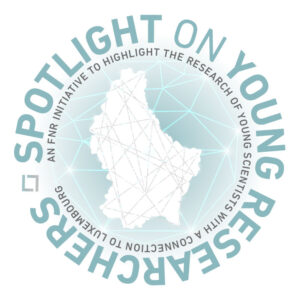BACK TO RESEARCH WITH IMPACT: FNR HIGHLIGHTS
As the global population sharply increases, so does the demand for clean water. At the same time, freshwater is gradually being depleted. Combine these two factors, and we have the potential for widespread water shortages – it is estimated that half of European basins will be experiencing water stress by 2030, and that 6 billion people will suffer from clean water scarcity by 2050. Researchers are working on cost-effective practices to address this impending crisis.
Over the last decades, scientists have stepped up research to counteract the trend of depleting freshwater. As a result, re-using water, as well as water desalination have become key practices in addressing this challenge, with scientists paying particular attention to developing processes that match modern environmental and economical sustainability standards.
Out of this, research has found membrane technologies to be effective alternatives to conventional desalination and water treatment methods. Two key benefits speak in favour of membrane processes: Firstly, membrane processes are athermal and since they do not involve phase changes, they are considered more energy efficient. Secondly, they allow for minimal use of chemicals and therefore have clear environmental benefits.
“Nowadays membrane technologies such as electrodialysis or reverse osmosis are effectively put to use for desalination of sea and brackish water, and are integrated in several water treatment processes,” explains material scientist Francesco Deboli.
Bringing down costs while staying sustainable
If there are effective, environmental ways to clean water, then what is the issue? In one word: costs. The high system cost of membrane processes often hinders their applicability.
“Membrane materials constitute an important share in the capital cost of an installation, especially in processes such as electrodialysis for which membranes are made of advanced functional polymeric materials. The development of cost-effective membrane materials is thus one of the key interests of the scientific community in relation to membrane technology.” Francesco explains.
Francesco’s PhD project – a collaboration between KU Leuven and Luxembourg-based company Amer-Sil S.A. – aims to help develop more cost-effective membrane materials. Specifically, the material scientist works on developing the next generation of cost-effective ion exchange membranes, with focus on the sustainability of their fabrication process.

“My research project (EXCEED) is focused on the development of an industry-oriented approach to the formulation and fabrication of ion exchange membranes,” Francesco explains, adding:
“This type of membrane is important for its use in electrodialysis processes aimed at desalination and resource recovery. EXCEED membranes are designed to reach performance in line with the current industry standard materials but – thanks to their innovative composite structure – can be fabricated using largely available precursors and through a sustainable process that can easily be scaled to industrial size.”
“This can be seen as an advantage towards cost-effectiveness over traditional ion exchange membranes, often produced by complex polymer synthesis and solvent and energy intensive processing.”
So far, the project has led to a proof of concept for the use of the EXCEED composite membranes in lab scale electrodialysis, with the patents filed for the membrane chemistry as well as the fabrication process of the membranes.
Francesco Deboli is a 3rd year PhD candidate. His research project is a collaboration between KU Leuven and Luxembourg-based company Amer-Sil S.A, funded by a grant from the FNR’s Industrial Fellowship programme.
More about Francesco Deboli
Working with industry versus pure academia
On how working with industry differs from academia
“In my experience, when compared to academia industry offers a more structured, goal-oriented working environment. This allows to reach milestones and deliverables in a faster way, but on the other hand leaves only limited space for in-depth or fundamental investigation of certain research aspects. In this sense academia offers an easier access to a wide range of expertise that can be usually involved when needed.”
“Working in an industrial environment – especially in small to medium size realities – also allows to get involved in the daily company functioning. In my case, this means being exposed to R&D planning, production and quality operations. I consider this opportunity particularly valuable in my development as an independent research professional.”
On how researchers benefit from working with industry and vice versa
“When well-managed, the synergetic collaboration between industry and academia facilitates high levels of efficiency and effectiveness in research. From the industry side, such a scheme allows to access a wide range of fundamental knowledge, know-how, and facilities often not available internally. On the side of academia, projects can benefit from the goal or product-oriented mindset of the industry, accessing a fast track to develop its research in a product.”
On working with industry as a researcher – what it looks like in practice
“My project – EXCEED – is executed as a collaboration between KU Leuven (Belgium) and Amer-Sil S.A. (Luxembourg). Effectively, I spend most of my time at the company headquarters in Luxembourg, travelling to Leuven on day visits or short stays according to the project or training needs. Amer-Sil has a mid-size (10 people) dynamic R&D team blending researchers and engineers with a multidisciplinary background in both fundamental and applied research. This creates an environment that fosters collaboration, and in which it is easy get support on a wide variety of project challenges. In this sense, I particularly value the mentoring from my daily supervisor at the company – Dr. Mateusz Donten – who is able to offer guidance both on the scientific and the more “industrial” aspects of the project. Additionally, I can count on the expertise and know-how of my research group at KU Leuven, which gives me the opportunity to look at my work from a different, more fundamental perspective.”
About Spotlight on Young Researchers
Spotlight on Young Researchers is an annual FNR campaign where we shine a Spotlight on early-career researchers across the world with a connection to Luxembourg. Over 100 features have been published since the first edition in 2016.
Browse them below!






